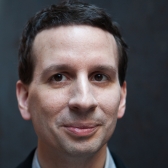
"American Liberation Footage"
Professional Background
Dr. Ingo Zechner is a philosopher and historian affiliated with the Austrian Film Museum and the Ludwig Boltzmann Institute for History and Society, Vienna (Austria). He received his Dr. phil. at the University of Vienna, Department of Philosophy (dissertation on the philosophy of Gilles Deleuze). From 2000 to 2008 he was an academic staff member at the Jewish Community Vienna, serving as Head of the Community’s Holocaust Victims’ Information and Support Center from 2003 to 2008. In 2009 he was the Business Manager of the Vienna Wiesenthal Institute for Holocaust Studies (VWI). From 2010 to 2011, he was a Research Fellow at the Labour History Society (VGA), Vienna: “Prozesse und Strategien faschistischer Herrschaft, Das Beispiel Wien”. Since 2011, he has been a Project Manager (“Ephemeral Films: National Socialism in Austria”) and a Researcher (“Amateur Film Archeology”) at the Austrian Film Museum and the Ludwig Boltzmann Institute for History and Society, Vienna. Dr. Zechner conducted research on American Liberation Footage while in Residence at the Center.
Dr. Zechner has published two books, an exhibition catalog and several articles on philosophy, film, literature, and music, as well as on archival work, and National Socialist deprivation of property and restitution, including “Elementares Kino: Fünf Notizen zu Hans Richters Rhythmus 21“. In: Forschungsnetzwerk BTWH (ed.): Hans Richters Rhythmus 21. Schlüsselfilm der Moderne. Würzburg: Königshausen & Neumann 2012; Felicitas Heimann-Jelinek, Lothar Hölbling and Ingo Zechner (eds.): Ordnung muss sein. Das Archiv der Israelitischen Kultusgemeinde Wien.Vienna: Jewish Museum Vienna, Exhibition Catalog 2007; Deleuze. Der Gesang des Werdens. Munich: Wilhelm Fink Verlag 2003; Bild und Ereignis. Fragmente einer Ästhetik. Vienna: Turia+Kant 1999.
His panel presentations and lectures in Austria, Germany, Switzerland, France, Iceland and the United States include “How to Make a Movie: Early Manuals for Amateurs” (Austrian Museum for Folk Art, Vienna, 2013); “Ökonomie und Magie” (University of Iceland, Reykjavik, 2012); “Dynamic Film Annotation: Ephemeral Documents Digitally Preserved” (University of Massachusetts, Amherst, 2012).
Fellowship Research
For his Raab Foundation Fellowship, Dr. Zechner researched existing finding aids, films, photographs, textual records and interviews that are available at both the Museum and the NARA; researched the biographies and working conditions of cameramen and photographers involved in capturing the concentration camp liberations; compared American, British and Soviet footage and usage in completed motion pictures and pictorial records; and conducted in-depth research and analysis of his findings. He anticipates publishing his findings with examples of liberation footage which will provide objective evidence about the Holocaust and the fundamental difference between the notions of defeat and liberation in a World War II context for use in educational programs for pupils and students organized by the Austrian Film Museum and the Ludwig Boltzmann Institute for History and Society in Vienna.
Dr. Ingo Zechner was in residence at the Center from April 1 to September 30, 2013.
